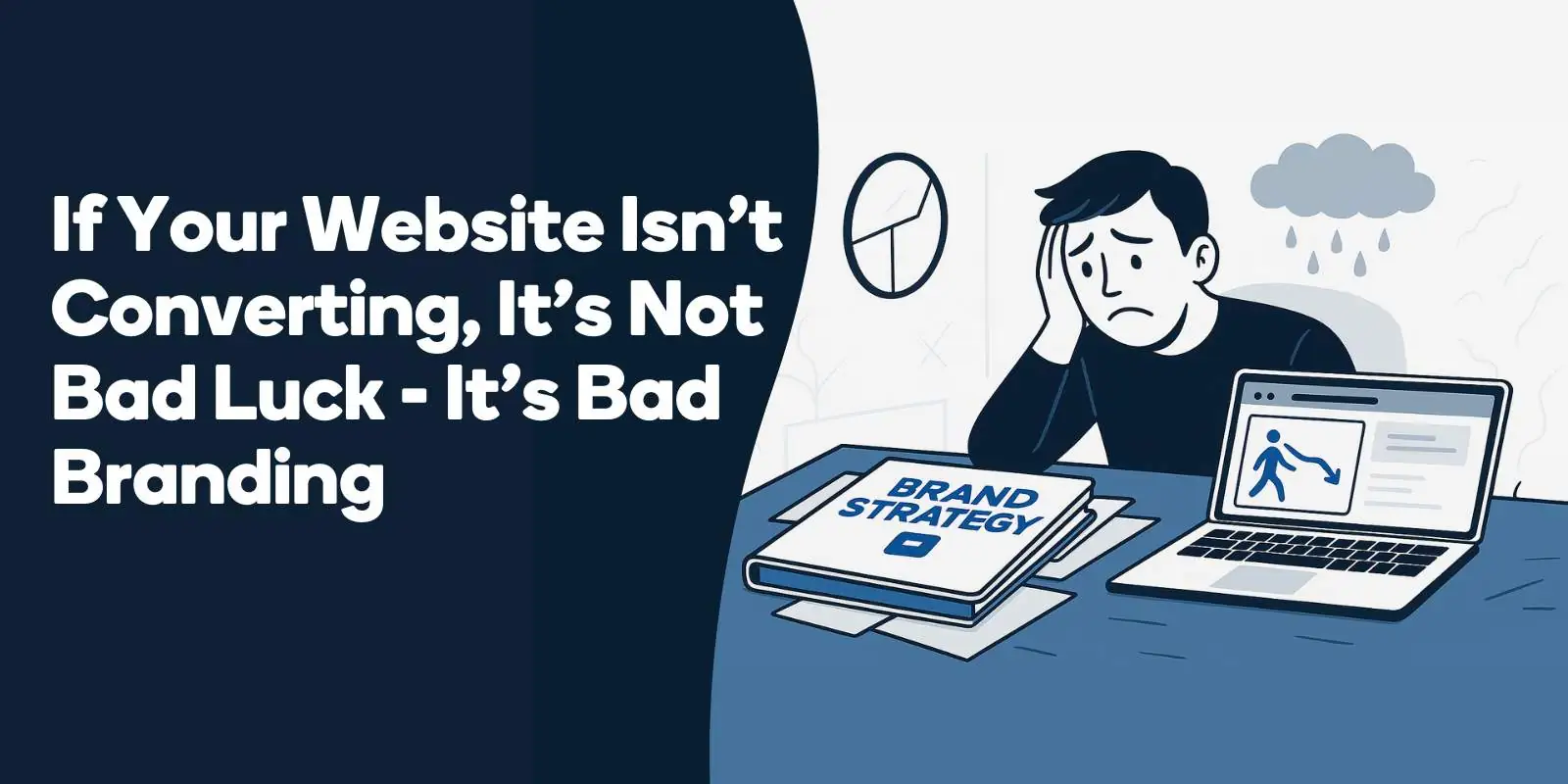In this blog post, we’ll shed light on the key differences between web designers and web developers, their respective responsibilities, skill sets, and career opportunities, all under the umbrella of “web designer vs web developer.”
By the end, you’ll be equipped with the knowledge to make informed decisions, whether you’re building a website or considering a career in this dynamic field.
Web Designer: The Creative Visionary
Web designers are the architects of the online world, responsible for creating visually appealing and user-friendly websites that deliver seamless user experiences.
It’s important to understand that web designers create the aesthetics, layout, and overall look and feel of a website, ensuring that it renders properly across a variety of devices.
Most web designers focus on these aspects to provide the best possible user experience, and this is where web designers work truly shines.
But web designers don’t work in isolation; they often collaborate with other professionals to bring a website to life. This could include web developers, content writers, graphic designers, and more.
Together, they create a website that is both visually appealing and functional.
UX/UI Designers
One such collaboration involves working with UX/UI designers to create an engaging experience for website visitors.
UX designers structure the actual website itself in a way that delivers a positive user experience, while UI designers optimize the site’s usability to promote conversions.
These professionals play a vital role in ensuring that websites are not only visually appealing but also user-friendly and functional.
Graphic and Visual Designers
Graphic and visual designers, including a visual designer, are another key component in the web design process.
These experts focus on enhancing the user journey and resolving design issues while conceptualizing a brand’s distinct style or tone of voice.
They employ various design tools like Adobe Photoshop, Illustrator, and InDesign to create stunning visuals that align with the brand’s identity and cater to the target audience.
Designers use these tools to create logos, icons, illustrations, and other visuals that help to communicate the brand’s message and create a memorable user experience.
Web Designer Skill Set
To excel in the world of web design, professionals need a unique blend of both technical skills and soft skills.
Proficiency in design software, HTML/CSS, and working knowledge of coding languages like JavaScript are essential for success in this field.
Apart from technical expertise, strong communication and collaboration skills play a crucial role in advancing a web designer’s career, especially when working with other professionals like web developers and UX/UI designers.
Web Developer: The Technical Architect
While web designers focus on the creative aspects of a website, web developers are the builders who bring the website designer’s vision to life.
In the realm of design vs web development, it’s like a construction company that turns an architect’s blueprint into a functional structure; web developers construct and maintain websites using coding and programming languages to ensure an optimal user experience.
But the world of web development is vast, with various specializations catering to different aspects of website creation, including those who create websites.
Front-End Developers
Front-end developers are responsible for coding and programming the visual elements of a website that users interact with.
They use languages like HTML, CSS, and JavaScript to create user-facing components, such as client lead forms, to ensure seamless navigation and accessibility.
By working closely with web designers, front-end developers bring the web creator’ creative vision to life on the web.
Back-End Developers
Back-end developers, on the other hand, focus on the server-side of web development, constructing the website’s core structure using programming languages like Java, SQL, and C#.
They primarily deal with web servers and databases, ensuring that the website operates efficiently and securely.
This behind-the-scenes work is crucial for a seamless user experience and plays a vital role in the overall success of a website builder.
Full-Stack Developers
Full-stack developers are the versatile all-rounders of the web development world. They possess expertise in both front-end and back-end development, making them capable of working on all components of a web application, from the server-side to the client-side, and even database management.
This comprehensive skillset allows full-stack developers to create, verify, and release web applications, making them invaluable assets to any web development project.

Award-Winning
Sales Funnel & Website Expert
Ready for Revenue – Not Just “Traffic”?
- Websites that Work: Clean, fast, built to convert – no design fluff.
- Funnels that Sell for You: Step-by-step paths that turn clicks into paying customers.
- SEO That Hunts Buyers: Show up exactly when prospects reach for their wallets.
Comparing Web Designers and Web Developers
Now that we’ve explored the roles of both web designers and web developers, let’s highlight the key differences between these two professions.
Web designers emphasize aesthetics, layout, and user experience, while web developers specialize in coding, programming languages, and technical expertise.
Understanding these distinctions is crucial when deciding which professional to hire for your project or which career path to pursue.
Job Responsibilities
In the website creation process, web designers and web developers have distinct tasks and duties. Web designers are responsible for crafting the visual elements of a website, including the layout, color scheme, and typography, as well as the user interface and user experience.
In the realm of web design vs web developers, the latter prioritizes the technical aspects of a website, such as coding, programming, and database management. This division of labor ensures that websites are both visually appealing and functionally sound.
Skill Sets and Tools
Web designers and web developers also differ in the skills and tools they employ. Web designers need to be proficient in design principles, graphic design software, and have a basic understanding of HTML/CSS and JavaScript.
In the world of web development, web developers play a crucial role. They require expertise in coding languages like HTML, CSS, and JavaScript, as well as databases, server-side scripting, and web application development.
Career Paths and Opportunities
Both web designers and web developers have a wide range of career paths and opportunities available to them.
In the realm of job roles web designers can pursue, there are options such as UX/UI designer, front end web developer back-end developer, or design director, offering ample room for professional growth and specialization.
Web developers also enjoy a strong job outlook, with the US Bureau of Labor Statistics projecting a 13% growth in demand over the next decade.
The choice between these two professions ultimately depends on your individual interests and strengths.
How to Choose Between a Web Designer and a Web Developer
With a clear understanding of the roles and responsibilities of web designers and web developers, how do you decide which professional is right for your project or career path?
The answer lies in assessing your project requirements, budget considerations, and collaboration and team dynamics.
Let’s explore these factors in more detail to help you make an informed decision.
Assessing Project Requirements
To determine which professional is better suited for your project, evaluate the specific needs of your website in the context of a web designer vs other professionals.
If you require a visually appealing and user-friendly site with a strong focus on design and user experience, a web designer may be the right choice.
However, if your project involves complex functionality, coding, and database content management systems, a web developer would be better suited to tackle these technical challenges.
Budget Considerations
Budget plays a crucial role in deciding whether to hire a web designer or web developer. Typically, web developers command higher rates than web designers due to their specialized coding and programming expertise.
When evaluating your budget, consider the specific requirements of your project and whether engaging both a designer and a web developer cost together is necessary to achieve your desired outcomes.
Collaboration and Team Dynamics
Lastly, consider the importance of communication and teamwork between web designers and web developers in achieving successful project outcomes.
Both parties must understand the project objectives and be able to collaborate effectively to create a cohesive functional website that meets the client’s requirements.
Establishing clear expectations, conducting regular check-ins, and providing timely feedback are essential strategies to ensure a smooth collaboration process.
Frequently Asked Questions
Who earns more web designer or web developer?
Generally, web developers have the upper hand in terms of earning potential compared to web designers. According to Glassdoor, the median annual pay for web developers is $82,454 (in the US, as of January 2024), while the median annual pay for web designers is around $65K.
This indicates that web developers typically earn more than web designers.
Is a web designer the same as a web developer?
No, a web designer is not the same as a web developer. Web designers are focused on user experience, visuals, and UX/UI design, while web developers are concerned with how a website functions.
Even though they are two separate roles, their tasks often overlap and they often work together to create effective websites.
Can a web designer be a web developer?
Yes, it is possible for a web designer to also become a web developer. With the right training and experience, web designers can learn the necessary skills to design and develop websites for their clients.
In addition, they can be an excellent source of creative input to assist developers in creating unique and visually-appealing web designs.
Do web designers do coding?
Yes, web designers do coding. Web designers are expected to be proficient in HTML, CSS and JavaScript, which are the most popular coding languages used for building websites. They may also know other coding languages depending on the project and have a good understanding of how websites work and how to make them interactive.
In general, web designers have at least some coding skills.
What are web designers?
Web designers create the look, feel and functionality of a website. They are responsible for designing and developing the interface of web pages with an emphasis on layout, graphics and user experience.
Web designers also ensure that websites are compatible with all devices, browsers and platforms.
Conclusion
In conclusion, understanding the key differences between web designers and web developers is essential for making informed decisions about your website project or career path.
Web designers focus on the creative aspects of a website, while web developers specialize in the technical components.
By assessing your project requirements, budget considerations, and collaboration and team dynamics, you can determine which professional is best suited to bring your vision to life and create a successful online presence.e visual elements of a website, including the layout, color scheme, and typography, as well as the user in








